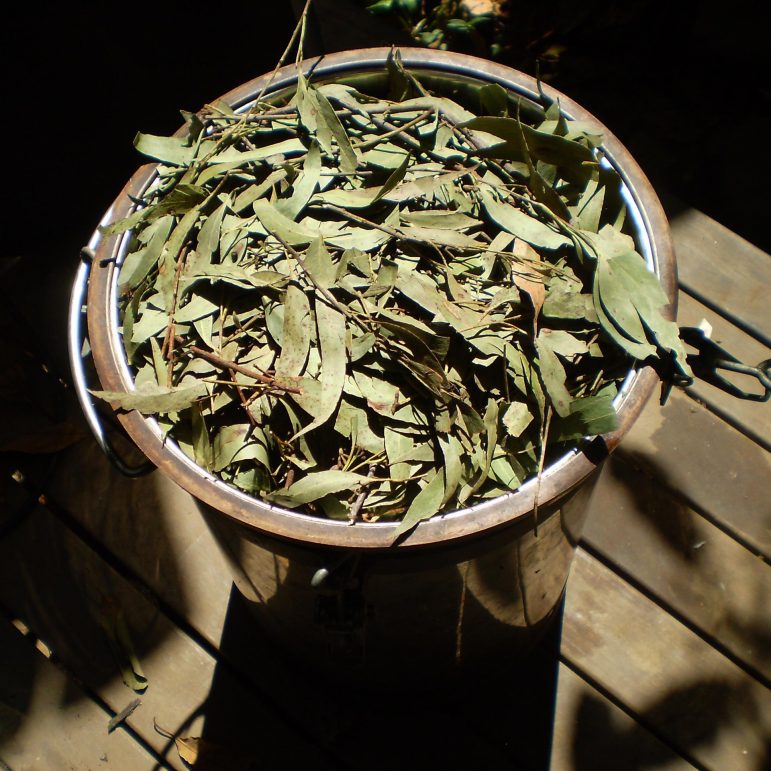“Once you got away from Boston the on physician dissolved into nothing. Healthcare was typically provided, amongst the early colonists, by the clergy.”
Flannery is the Associate Director for Historical Collections at the Lister Hill Library of Health Sciences. He says the book the clergy relied on was a slim volume called “The English Physician” — the first medical manual published in what were then the British American colonies. It came out in 1708 and it was a hit.
“This would be picked up by the woman of the house who would take a book like this, use it as a guide, in fact, to plant her herb garden, which was the colonial version of today’s medicine chest.”
Flannery edited a new reissuing of “The English Physician”. Flipping through the book you quickly realize some of the remedies read more like Harry Potter than medical manual.
“If you want to take venom away from the heart, I’m not sure what venom he’s referring to, you can take Bole Ammoniack, Sanguis Draconis, that’s dragon’s blood…”
Dragon’s blood?
“Dragon’s blood is a plant. Gets its descriptive name from its red color.”
These plants, by the way, they weren’t native to this continent. They were plants the colonists had to bring over from England. They would go on to change the landscape…some would say not necessarily for the better.
“These plants would be planted in herb gardens in and around Boston where this book was published and then disseminate themselves far and wide across the landscape. I mean, you know, things like the dandelion that we curse and ruin our own, you know, yards, is a product of England.”
While we may have England and “The English Physician” to blame for those pesky dandelions, there is something to thank Nicholas Culpeper, the book’s author, for. Flannery says the book helped create an American populist view of medicine.
“This started a healthcare tradition in the United States. It sparked a way of looking at health and healthcare by using natural products, by using a less expensive form of treatment.”
And, even though it’s almost three-hundred years old Flannery says some of those treatments hold up.
“For the skin and a flushed face use cucumbers. Everything in it is not completely off the wall.”
That doesn’t include this remedy for inward bruises, though.
“It’s a conglomeration of an assortment of botanicals, everything from East Indian climbing palm, whatever that is, to dragon’s blood and then my personal favorite, powdered mummy. Rosemary: So they … powdered mummy? How did they get powdered mummy? Flannery: From mummies.”
Flannery says people believed you could spark the “life force” by ingesting powdered mummy. I think I’ll pass.
Remedies from “The English Physician”
For a Chin Cough: Take wild Thyme, boil it in white Wine, and drink of the Decoction often, and first and last. A better Remedy for this Infirmity is scarce.
For a Consumption: Take a Breast of fat Pork, boil it in red Cow’s Milk, and drink thereof a good Draught first and last, and at 4 in the Afternoon.
For a Weft of the Eye-lid, that darkens the Sight: Take the Juice of Fennel, and wash it therewith, and drop thereof 3 drops into the Eye, twice a day. It will take away the Weft immediately, and restore the sight.
Good at any time when you are ill: Take Brandy one ounce and a half, Carduus Water one ounce, Sugar-candy powdered one drachm, Saffron one grain, Mace 3 grains; mix them and drink it up.

